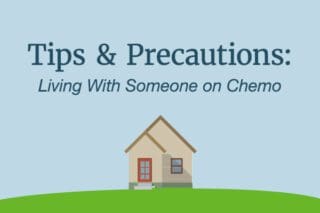Chemotherapy is a key treatment for millions of cancer patients. But chemo can cause diet-related side effects that may change a person’s relationship with food. Certain dishes and smells can trigger nausea and create negative associations with mealtime. These changes can make it difficult to get good nutrition.
Chemotherapy often plays a pivotal role in multimodal plans for mesothelioma. This means many patients must accept the challenges it brings. But it is natural to feel frustrated when chemo affects such a key part of your daily life.
Experts say some foods may worsen eating-related chemo side effects. Others may carry unnecessary risks, like the potential to develop food poisoning. The list below contains foods you may want to leave off the menu until after chemo. Patients can review it to learn how each food may worsen the treatment experience.
What Not to Eat During Chemo: A List for Patients
Alcohol
Why You Might Want to Avoid This: Alcohol can worsen diarrhea and contribute to dehydration. And because dehydration can lead to nausea, consuming alcohol can make eating even more difficult for patients.
Citrus Fruits
Why You Might Want to Avoid This: Some patients may get mouth sores from chemotherapy. Acidic foods like oranges and grapefruits can make them worse. Patients with sores or increased sensitivity in the mouth may not want to eat citrusy foods.
Foods That Don’t Appeal to You
Why You Might Want to Avoid This: Some patients force themselves to eat nutritious foods even if they think they’re gross. In one real-life example, a breast cancer patient’s chemo made the texture of yogurt revolting to her. But she continued to eat it because it is a healthy food. After treatment ended, she couldn’t eat plain yogurt anymore because of the bad memories this created.
Hot, Aromatic Foods
Why You Might Want to Avoid This: Hot or strong-smelling foods might trigger nausea and make meals seem unappealing. But every patient is different, and some may find certain hot foods comforting. You can prioritize the foods that bring you the most comfort without turning your stomach.
Raw or Undercooked Eggs, Meat or Seafood
Why You Might Want to Avoid This: Cancer and its treatments can weaken the immune system, putting patients at higher risk of infection. Raw or undercooked animal products, like sushi, can cause food-borne illnesses. In turn, these could make eating even more difficult. Experts recommend skipping these types of food until treatment ends.
Unpasteurized Milk, Cheese or Juice
Why You Might Want to Avoid This: Raw milk products, including unpasteurized cheeses, may contain harmful bacteria. The same goes for unpasteurized juices. Chemo patients with weakened immune systems may not be equipped to fight off bacterial infections. Experts recommend leaving these off the plate during chemo treatment.
Unwashed Fruits and Vegetables
Why You Might Want to Avoid This: Unwashed fruits and vegetables can carry illness-causing germs. Cancer patients may choose to skip these foods to reduce the risk of food-borne infections.
Your Favorite Foods
Why You Might Want to Avoid This: Eating a favorite meal while nauseated might create a negative memory. You may end up disliking the meal once treatment ends.
Your Chemo Dietary Restrictions Are Personal
Every cancer patient has their own experience with chemotherapy side effects. Your diet and nutrition plan can be customized to your unique needs. Experts say you should discuss any eating problems with the oncology team as soon as possible. The team can work with you to ensure you pick – and avoid – the foods that make the most sense for you.




